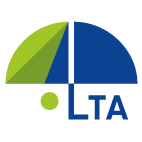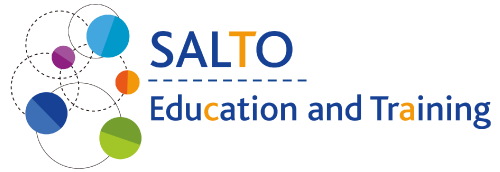Blended Mobility within the Context of Digital Pedagogy

Main Info
TCA Description
The overall aim of the thematic seminar is to explore how blended mobility can enhance digital pedagogy in School Education and Vocational Education and Training, particularly within the Erasmus+ programme. It also seeks to examine what role, if any, AI can play in blended mobility, as well as share practical examples, and foster collaboration among educators and institutions to support the effective integration of blended mobility into Erasmus+ activities.
The event will be blended with a compulsory online meeting taking place on the 19th of November: 15.00 CET (Central European Time).
This thematic seminar is part of the LTA 2025-2027 Digital Pedagogy in the Age of AI.
All participating LTA partners are asked to conduct an analysis of the state of play regarding blended mobility in SCH and VET KA1 projects in their country before the virtual event in November. This includes the share of blended mobility of all learning mobility activities as well as additionally looking into the experiences of schools who are organising blended mobility and the reasons why those not organising blended mobility are not doing it.
Participants from schools whose NAs are not partners are highly encouraged to also answer the questionnaire, which will be shared after their participation has been approved by the organising NA.
The overall aim of the thematic seminar is to explore how blended mobility can enhance digital pedagogy in School Education and Vocational Education and Training, particularly within the Erasmus+ programme. It also seeks to examine what role, if any, AI can play in blended mobility, as well as share practical examples, and foster collaboration among educators and institutions to support the effective integration of blended mobility into Erasmus+ activities.
Themes:
1. Blended Mobility in the Context of Digital Pedagogy
Explore the concept and practice of blended mobility within Secondary Education (SE) and Vocational Education and Training (VET).
Investigate its role in supporting and enriching digital pedagogy, especially as education adapts to an increasingly digital and AI-driven landscape.
2. Methodological Integration in SE and VET
Share best practices and strategies for using blended mobility methodically to enhance teaching and learning.
Highlight how blended mobility can serve as a bridge between theoretical knowledge and practical, cross-cultural collaboration.
3. Blended Mobility within Erasmus+
Define what constitutes blended mobility under the Erasmus+ programme for SE and VET.
Clarify eligibility, structure, and intended outcomes as outlined by Erasmus+ guidelines.
4. Experiences from the Field
Present good practices and testimonials from schools that have already implemented blended mobility activities.
Brainstorm ideas for blended mobility practices at participants’ home institutions.
5. Barriers and Opportunities
Discuss why some schools participating in Erasmus+ are not yet carrying out blended mobility.
Identify potential barriers (logistical, financial, digital literacy, etc.) and discuss support mechanisms to enable broader adoption.
6. AI’s Influence on Mobility and Pedagogy
Examine how AI tools and systems are shaping new opportunities and challenges for blended mobility.
Consider the possibilities of integrating AI in both physical and virtual learning mobility.
Goals of the Seminar:
Raise awareness of the potential of blended mobility to innovate digital pedagogy in SE and VET.
Foster dialogue between institutions already implementing blended mobility and those exploring it for the first time.
Encourage reflection on the possible future role of AI in mobility, learning design, and institutional collaboration.
Develop practical guidance and share tools, resources, and strategies for integrating blended mobility into Erasmus+ projects.
Build networks among educators, coordinators, and policymakers to support future cooperation in blended learning activities.
Partners and participants
There should be a balance of SCH and VET participants.
Pending booked places
Accepted places
TCA Participant Application
Long-term Activity Info
The aim of the LTA "Digital Pedagogy in the Age of AI" is to support the development of digital competences and the purposeful and methodical use of digital tools, learning materials, and content in teaching and learning within the School Education (SCH) and Vocational Education and Training (VET) sectors. Additionally, with the rapid development of artificial intelligence (AI) and digital technologies, this LTA seeks to equip education leaders and teachers in SCH and VET with the knowledge and skills to integrate AI-driven solution effectively and ethically into teaching and learning. Building on previous LTAs, this initiative seeks to create a structured, evidence-driven approach to digital pedagogy and AI in quality TCAs through strong collaboration among participating National Agencies (NAs).
On the SCH and VET sector level:
Raising awareness and fostering digital competences among educators remains a challenge, as individualized learning pathways require tailored support. The development and sustainability of a high-quality digital education ecosystem need stronger leadership and systemic transformation efforts in SCH and VET institutions. It is critical to address the gap in digital skills and access to technology to ensure equal learning opportunities, but it is equally important to acknowledge that institutions or local governments may not have the resources needed for closing these gaps. Additionally, ensuring digital well-being and tackling disinformation remain ongoing sector-wide concerns.
On LTA management level:
Foster stronger cooperation among National Agencies to drive digital transition within Erasmus+. Enhance collaboration among participating NAs to effectively leverage existing research and resources, improve coordination in organizing TCAs.
In 2025:
12-14 March – a face-to-face partners’ kick-off meeting in Tallinn.
A desk research analysis of the current state of digital pedagogy and AI in Erasmus+ programs, utilizing various data sources—including the three existing Long-Term Activities (LTAs)—to assess their findings and document best practices within Erasmus+ and other national programs.
10-12 December – Thematic seminar on Blended Mobility for SCH and VET KA1 Beneficiaries. How to seamlessly combine physical mobility and virtual learning for a more impactful learning experience. Learning from best practices.
Activities 2026-2027: dissemination of research results, webinars in cooperation with eTwinning and EITA, 8 TCAs and a final conference.
- Improved quality of Erasmus+ projects on digital pedagogy and AI.
- Mainstreaming of best practices in digital pedagogy and AI and wider use of Erasmus+ project results.
- Insights from a comprehensive analysis of digital pedagogy and AI in Erasmus+ programs inform best practices and guide future improvements across initiatives.
- Targeted support for National Agencies through TCAs, focusing on capacity building, resource sharing, and practical guidance.
- Stronger collaboration among participating National Agencies to effectively leverage existing research and resources, improve coordination in organizing TCAs.


